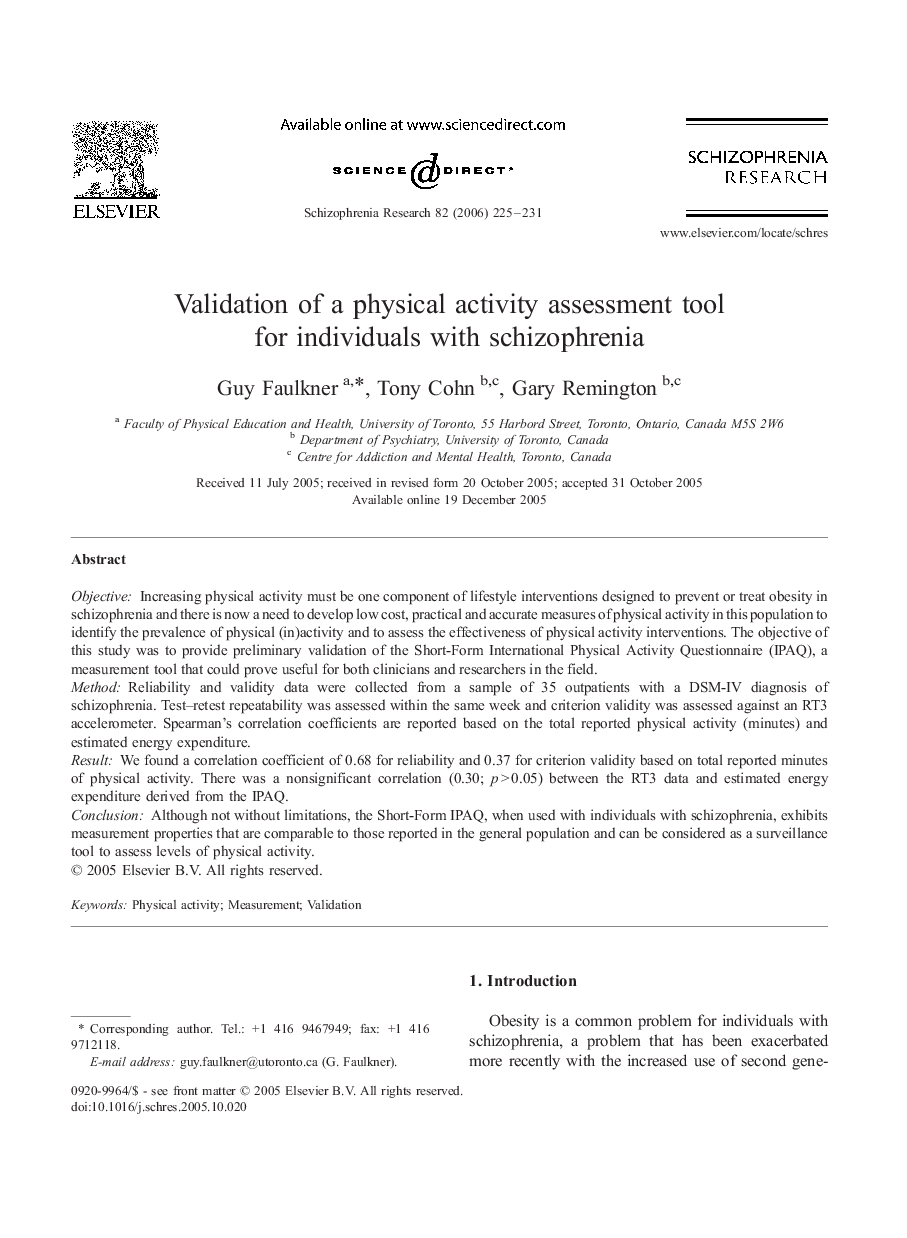| Article ID | Journal | Published Year | Pages | File Type |
|---|---|---|---|---|
| 338954 | Schizophrenia Research | 2006 | 7 Pages |
ObjectiveIncreasing physical activity must be one component of lifestyle interventions designed to prevent or treat obesity in schizophrenia and there is now a need to develop low cost, practical and accurate measures of physical activity in this population to identify the prevalence of physical (in)activity and to assess the effectiveness of physical activity interventions. The objective of this study was to provide preliminary validation of the Short-Form International Physical Activity Questionnaire (IPAQ), a measurement tool that could prove useful for both clinicians and researchers in the field.MethodReliability and validity data were collected from a sample of 35 outpatients with a DSM-IV diagnosis of schizophrenia. Test–retest repeatability was assessed within the same week and criterion validity was assessed against an RT3 accelerometer. Spearman's correlation coefficients are reported based on the total reported physical activity (minutes) and estimated energy expenditure.ResultWe found a correlation coefficient of 0.68 for reliability and 0.37 for criterion validity based on total reported minutes of physical activity. There was a nonsignificant correlation (0.30; p > 0.05) between the RT3 data and estimated energy expenditure derived from the IPAQ.ConclusionAlthough not without limitations, the Short-Form IPAQ, when used with individuals with schizophrenia, exhibits measurement properties that are comparable to those reported in the general population and can be considered as a surveillance tool to assess levels of physical activity.
